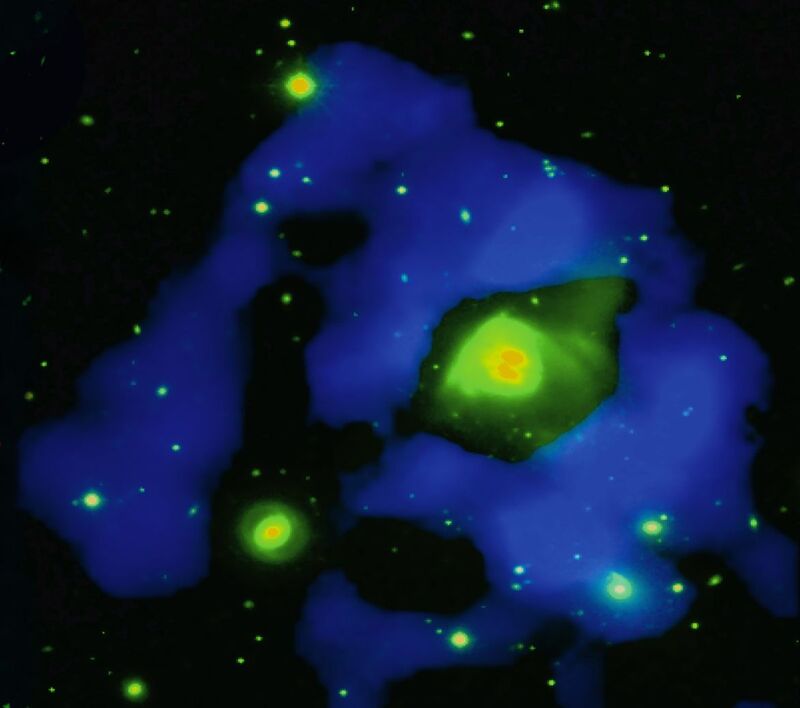Atomic Gas in Arp 220
Description
Composite image of the nearest Ultraluminous Infrared Galaxy (ULIG), Arp 220. The image shows the optical starlight depicted in green, yellow, and orange, with the neutral atomic hydrogen gas depicted in blue. ULIGs emit more energy in the Infrared than at any other wavelength. This energy arises from a powerful dust-enshrouded starburst, believed to be triggered when two galaxies smash together. The dust is heated by the UV light emitted by the young, hot stars made in the starburst, and re-radiate this energy at infrared wavelengths. The peculiar optical morphology of this system supports the idea that Arp 220 is the result of two galaxies merging into one, and the neutral atomic gas in the outer regions indicates that the galaxies which merged were gas-rich spiral galaxies. There is actually not a hole in the atomic gas distribution; the central gas is absorbed against a bright central radio continum source (not shown) so it is not seen in emission.
VLA C+D array observations at 30" resolution. Optical image is a 900 sec R-band observation with the University of Hawai'i 88" telescope obtained in June 1995.
Creator
Legacy Astronomical Images
Rights
NRAO/AUI/NSF does not hold full copyright for this image. Contact the archivist for details.
Type
Legacy Astronomical Image
Object Name
Arp 220
Photo Credit
M. Yun & J. Hibbard
Investigators
M. S. Yun, J. E. Hibbard
Telescope
Very Large Array (VLA)
U. Hawaii 88
Observation Date
1994-12-00
Type of Observation
spectral line
Wavelength
21 cm
Frequency
1420.4 MHz
Species
HI
Center of Image
RA 15:34:57.210, Dec: 23:30:9.500 (J2000)
Field of View
0.100000 x 0.100000 degrees
Link to journal article
Notes
Contact the archivist for a high resolution tif of this image.
Series
Galaxies Series
Unit
Peculiar Unit
Citation
Legacy Astronomical Images, “Atomic Gas in Arp 220,” NRAO/AUI Archives, accessed April 20, 2025, https://www.nrao.edu/archives/items/show/33546.

